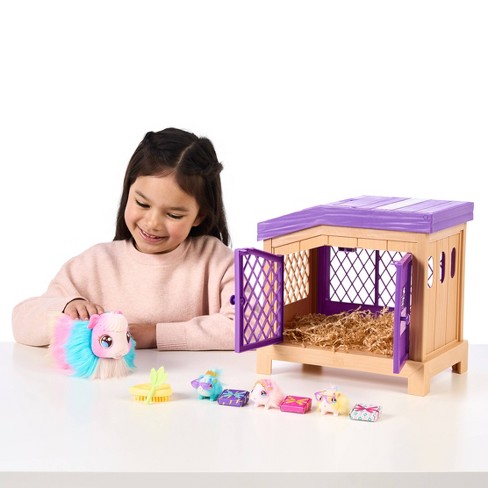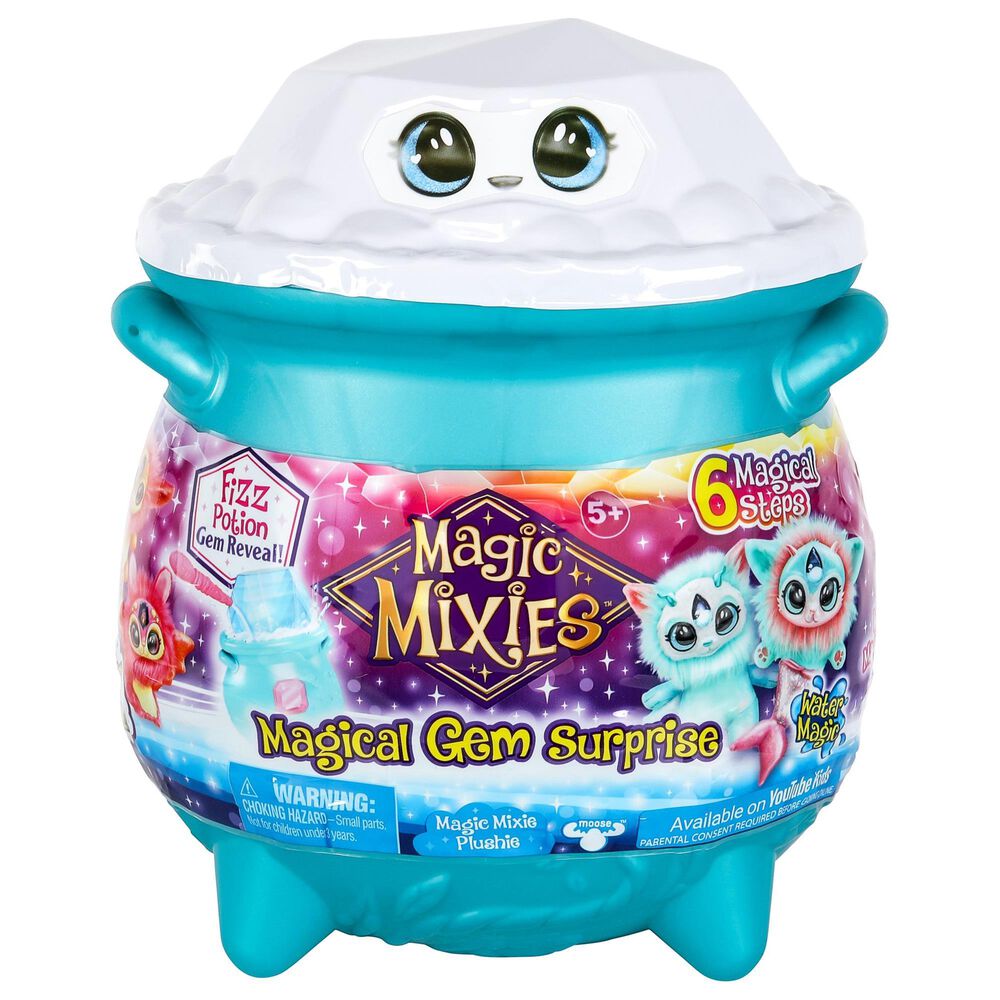A baby moose typically weighs around 30-35 pounds at birth. This weight can vary slightly based on the moose’s specific age and health.
Baby moose, also known as calves, are incredibly precious and vulnerable creatures that require careful attention and protection in the wild. Moose are the largest species in the deer family and are known for their unique appearance and majestic presence in the forests of North America.
Calves are born with a reddish-brown coat that later transitions to the iconic dark brown color of adult moose. They rely on their mothers for nourishment and protection in their early days of life, learning essential skills for survival in the wilderness. Understanding the weight of a baby moose is just one aspect of appreciating these remarkable animals and the delicate balance of nature they depend on for their well-being.

Credit: www.amazon.com
The Weight Of A Baby Moose
A baby moose generally weighs around 25 to 35 pounds at birth, making it one of the largest newborn mammals. Despite being so hefty, they are quite agile and can outrun humans. Their weight increases rapidly in the first few months.
Understanding a baby moose’s weight is crucial for their care and well-being.
The Average Weight
On average, a baby moose weighs between 25 to 35 pounds at birth.
Factors Affecting Weight
- Diet: The mother’s nutrition contributes to a baby moose’s weight.
- Genetics: Moose calves inherit weight traits from their parents.
- Environment: Health and feeding conditions impact the calf’s weight.

Credit: www.target.com
Diet And Nutrition
Baby moose weight is significantly influenced by their diet and nutrition. The nutritional intake directly impacts their growth and overall health.
Impact On Moose Weight
The diet composition has a direct impact on how much a baby moose weighs. Variety in diet contributes to balanced weight gain.
Caloric Needs
Baby moose have high caloric needs to support their rapid growth. Their diet should be rich in nutrients and energy-dense foods.
Moose Growth And Development
A baby moose, also known as a calf, undergoes significant growth and development from birth to adulthood. Understanding the different stages of their physical development and how their weight changes over time provides valuable insight into the lifecycle of these majestic creatures.
Physical Development Stages
From birth, a baby moose experiences several physical development stages, each essential to their survival and maturation. These stages include
- Birth: A newborn moose calf typically weighs between 25 to 35 pounds, and they rely on their mother’s milk for nourishment.
- Infancy: As they transition from nursing, calves start grazing on grass and plants. They also begin to develop their characteristic long legs and broad, palmated antlers.
- Adolescence: Young moose continue to grow in size and strength, honing their skills in navigating their environment and interacting with other moose.
- Adulthood: By the age of four or five, moose reach their full size and physical maturity, ready to reproduce and contribute to the population.
Weight Changes Over Time
Moose calves experience remarkable weight changes as they progress through their physical development stages.
| Age | Weight (lbs) |
|---|---|
| Birth | 25-35 |
| 6 months | 150-200 |
| 1 year | 300-400 |
| 2 years | 600-700 |
| 4 years | 800-1000 |
Comparison To Adult Moose
Comparing the weight of a baby moose to an adult moose is a fascinating exploration into the growth and development of these magnificent creatures. The weight difference between a baby moose and an adult moose is quite significant, and there are several factors that contribute to this disparity. In this article, we will delve into the differences in weight between baby and adult moose, as well as the factors that contribute to their size.
Differences In Weight
The weight disparity between baby moose and adult moose is quite remarkable. While a baby moose, also known as a calf, typically weighs around 25 to 35 pounds at birth, an adult moose can weigh anywhere between 700 to 1500 pounds.
As baby moose grow, so does their weight. Within the first year, a calf can gain about 40 to 60 pounds. By their second year, a young moose will usually weigh around 300 to 400 pounds. However, it takes several more years for them to reach their majestic adult size and weight.
Factors Contributing To Size
There are several factors that contribute to the substantial size difference between baby and adult moose:
- Gender: Adult male moose, also known as bulls, are generally much larger and heavier than adult female moose, known as cows. Bulls can weigh up to 1500 pounds, while cows tend to weigh around 700 to 1100 pounds.
- Diet: Moose are herbivores that primarily feed on plants, such as leaves, twigs, and bark. As moose grow older, their dietary needs change, requiring them to consume larger quantities of food. This contributes to their overall size and weight.
- Genetics: Genetics play a crucial role in determining the size and weight of a moose. Some individuals may have genetic traits that make them larger and heavier than others.
- Age: As moose age, their bodies continue to grow and develop. It can take several years for a moose to reach its full adult size, and their weight increases in tandem with their growth.
These factors interact to shape the weight disparity between baby and adult moose, highlighting the remarkable growth and transformation these creatures undergo as they mature.
Implications For Conservation
Understanding the weight of a baby moose is crucial for conservation efforts. By comprehending healthy moose growth patterns and the impact of environmental factors, conservationists can make informed decisions to protect this magnificent species. Let’s dive deeper into these key aspects:
Understanding Healthy Moose Growth
To effectively conserve baby moose populations, it is essential to have a clear understanding of their healthy growth patterns. Moose calves are born weighing approximately 30-35 pounds, and within just a few weeks, they can double their weight. By the time they reach six months of age, their weight can reach an impressive 300-400 pounds.
This substantial weight gain in such a short period is crucial for their survival. It provides them with the strength and energy required to endure harsh winter conditions and evade predators. By monitoring and ensuring healthy growth, conservationists contribute to the sustainability and well-being of baby moose populations.
Effects Of Environmental Factors
The weight of baby moose can be influenced by various environmental factors that impact their access to food and overall well-being. These factors include the availability of adequate forage, climate conditions, predation, and competition for resources.
For instance, a scarcity of nutritious food sources can lead to malnourished moose calves, hindering their weight gain and overall development. Climate variations, such as severe winters or droughts, can reduce food availability and further affect their growth. Additionally, increased predation or competition with other herbivores can also impact their weight and survival.
Conservation efforts must take these environmental factors into account. By addressing challenges such as habitat loss, climate change, and managing predator populations, conservationists can create an environment conducive to healthy moose growth. This approach helps ensure the long-term survival of baby moose and enhances the ecological balance of their habitats.

Credit: www.nfm.com
Frequently Asked Questions Of How Much Does A Baby Moose Weigh
How Much Does A Baby Moose Weigh At Birth?
A baby moose, also known as a calf, typically weighs around 30 to 35 pounds when it is born. However, in some cases, they can weigh up to 45 pounds. The weight of a baby moose depends on various factors such as the health and size of the mother moose.
How Quickly Does A Baby Moose Grow?
A baby moose can grow rapidly during its first year of life. On average, a calf can gain about 1. 5 to 2 pounds per day during the first few months. By the end of its first year, a baby moose can weigh around 300 to 400 pounds, depending on factors like its genetics and available food sources.
How Long Does It Take For A Baby Moose To Become Fully Grown?
It takes a baby moose around 5 to 6 years to become fully grown. During this time, they go through various stages of growth and development. By the age of 2, moose calves begin to resemble adult moose in terms of size and shape, but they continue to grow in height and weight until they reach maturity.
What Factors Influence The Weight Of A Baby Moose?
The weight of a baby moose is influenced by several factors. The genetics of the mother and father moose play a significant role, as larger moose tend to have heavier calves. The quality and availability of food sources also impact the weight of a baby moose, as a well-nourished calf will grow faster and weigh more than one with limited access to food.
Conclusion
In the wild, a baby moose typically weighs between 25 to 35 pounds at birth. Understanding the average weight of a baby moose is important for conservation efforts and wildlife management. By learning about their weight, we can better protect and preserve these magnificent creatures for future generations to enjoy.


